Manning up didn't help me: suicide survivor riding to raise awareness of men's mental health
Nick Frendo is encouraging men to open up and talk more
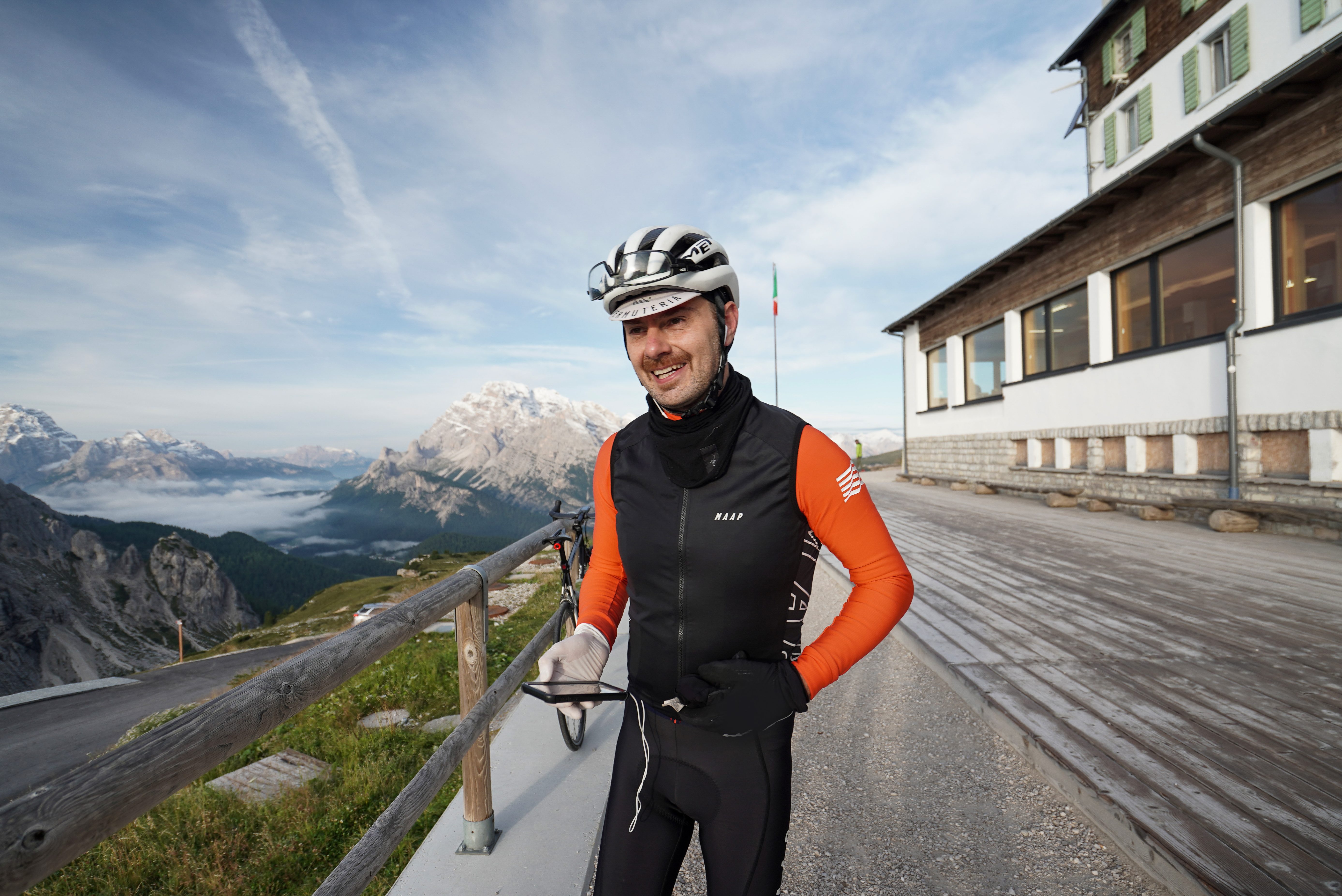

Browsing photos of Nick Frendo waltzing his bike up and over the Dolomites of northern Italy, you'd never know the two wheels he's now using to raise money and awareness for men's mental health almost served as a means with which to end his life.
Pointing the finger at “man up” culture, the two-time suicide survivor is on a campaign to encourage others to open up and be honest about their emotions.
At a time where male suicide rates are up 12 per cent, the highest in 15 years according to the Office for National Statistics, the Sommet.cc tour guide's message is both timely and urgent.
“I’d always thought I was just a bit anti-social, and a bit angry. I thought I wasn’t designed to be happy. Then, I had a few instances where things when wrong: a divorce, not being able to hold down decent friendships, work – it just got to a point where I was questioning myself a lot,” Frendo says, describing the perfect storm which led to his first attempt to end of his life.
“I ran away to Girona – I thought it would be the answer to everything. But in the end I isolated myself and things got progressively worse.”
Whilst for many bike riding can be a release, for the now 44-year-old, it was a long bike ride where it all nearly ended.
“When I was really struggling, the first thing I’d want to do is go out and ride my bike, with the intention of clearing my head," he says. "But because I was on my own, I would just be my own worst enemy. I didn’t find it, the escape that people dream about. It was a pretty horrible place to be.
Get The Leadout Newsletter
The latest race content, interviews, features, reviews and expert buying guides, direct to your inbox!
“I went for a long ride, with the intention of not coming back.”
Frendo’s first attempt to take his life was thankfully unsuccessful. He sought professional help, but didn't tell family and friends what he'd been through. After a second attempt, he moved back to London and began to open up.
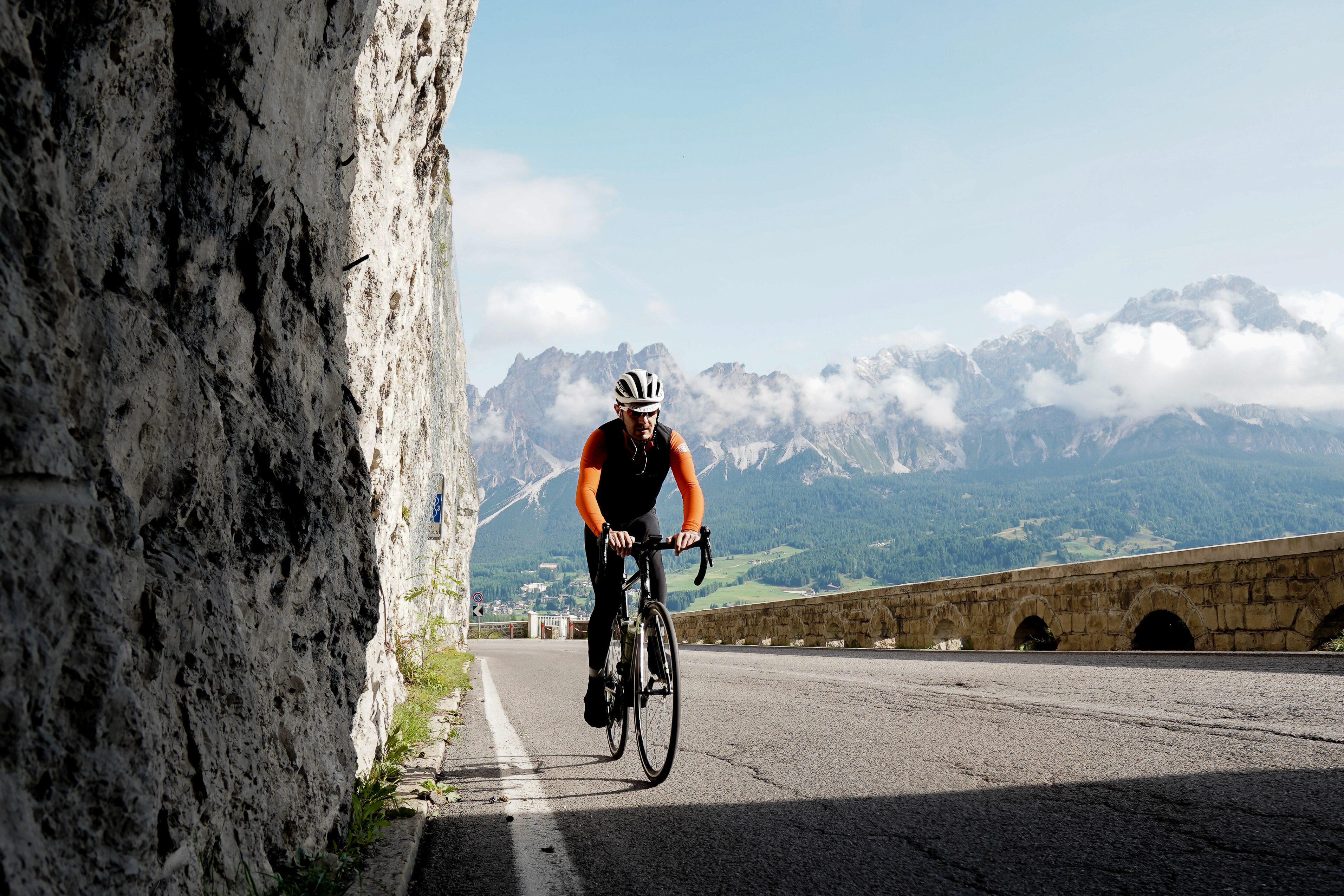
“For me talking has been the best thing," he says.
“It’s still a bit of a rollercoaster at times, but now, if I have a bit of a period where I’m struggling, the first thing I’ll do is find someone to talk to. Before I just dealt with it in my own head - badly.”
Heartbreakingly, Frendo's experience is far from as isolated as he made himself to be in his worst moments.
According to research by 'Time to Change', a movement led by the charity Mind, men are less knowledgeable about mental health, with more negative attitudes. They're also less likely to report their own experiences or discuss mental health problems.
In 2018, there were 6,507 deaths by suicide, and three quarters of victims were men according to the Mental Health Foundation.
“The statistics are alarming. The more people I speak to, the more messages I get; it just blows my mind how many people out there are going through exactly the same thing.
“As a man, it often feels like you’re not supposed to feel ‘that way’. When I was low, I just couldn’t bring myself to talk to anyone. I built this façade up and hid behind it."
Cycling can help or harm
Frendo is now using his bike to complete epic rides in a bid to raise money for men’s charities (over £10,000 and counting).
His most recent exploit saw him complete 190km and 6000m of climbing in the Dolomites on World Suicide Prevention Day, and in June he rode 2,500km with 48,000m across the Pyrenees, Alps and Dolomites.
For Frendo, the bike has also become a tool for socialising and sharing experiences.
For others, cycling can rear its head as a negative influence: the data, the obsession, the addiction to endorphins, and for pros the pressure of expectation - which all need to be handled with care.
In March this year, Olympic cyclist Callum Skinner retired, later saying that a lack of understanding about mental health from British Cycling bosses had resulted in this decision, aged 26.
The National governing body said that Skinner's feedback helped inform its mental health provision, with a screening programme introduced in May.
Marcel Kittel also retired this year, the German sprinter said he had “lost all motivation to keep torturing [himself] on a bike,” blaming the lack of time for family and "the perpetual tiredness and routine."
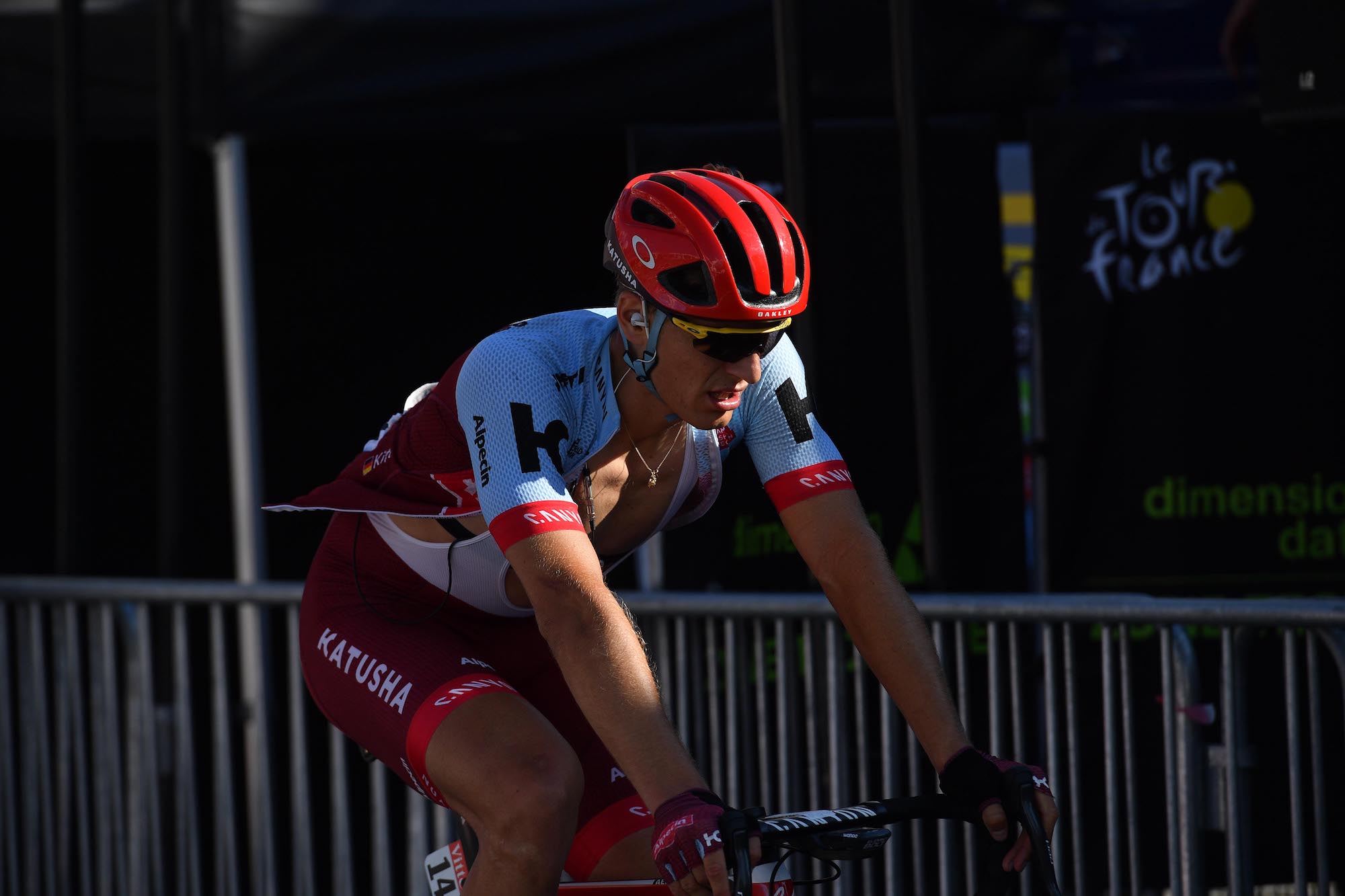
Gary Souter is an Associate Professor in Nursing, who teaches in a range of subjects including mental health and communication.
His review into 'Men, Mental Health and Elite Sport' looked specifically at elite athletes, highlighting mounting pressures and tendency to bottle things up as risk factors.
Speaking to Cycling Weekly, he said: "Sport brings its own pressures. But athletes still face the same life events as anybody else might: issues with family, relationship issues, family bereavement, anything like that can have an impact away from the sport.
"There's evidence to suggest that people bring that into their sport, the same way I might bring home stresses to work and they may affect me there."
This can create a self-perpetuating vicious cycle of stress and impaired performance.
>>> Does elite cycling have a problem with mental health?
Amateur athletes competing alongside work have a slightly different issue.
"Amateurs are presumably doing their sport in their spare time. So they have all the pressures of a normal working week, plus all the family pressures, and then in their spare time they're competing or engaging in their sport."
"A simple analogy is that if you've got a bucket, and you're filling it with water, which represents all your stresses: your bucket will only take so much water. If it gets to the top, it overflows, that's when you're likely to have a crisis," Souter says.
"If you've got too much going on, you need to be able to say 'I need a mental health day, a bit of time out, to make things a bit more manageable'."
Much like Frendo, Souter says men need to open up.
"Things are changing. But with traditional masculine stereotypes, men have to put on a brave face and a lot of them do hide behind a mask.
"The key thing - actually for both men and women - is to talk. It's not a sign of weakness. It doesn't matter who you talk to, and you won't necessarily get the answers, but its just nice to offload and ventilate those feelings."
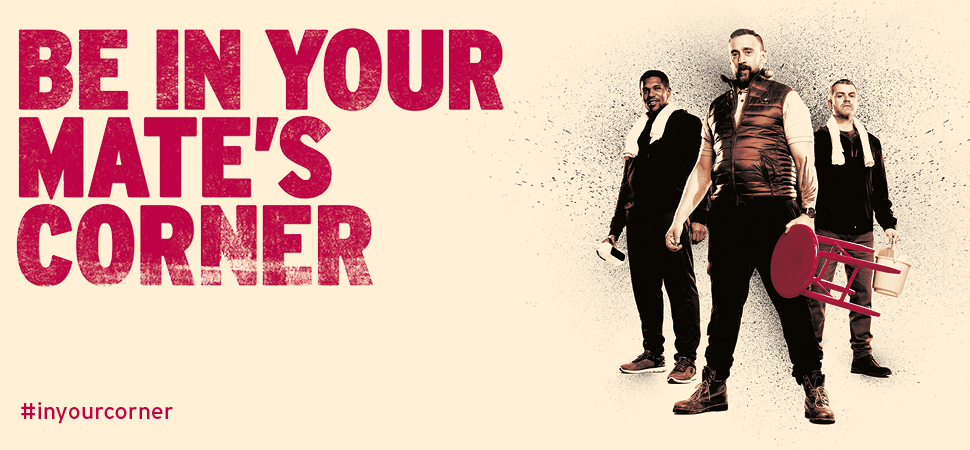
In 2017, Time to Change launched the 'in your corner' campaign, encouraging men not just to open up themselves, but to be ready and equipped to support friends, too.
Souter tells us: "Early recognition is important. If you see someone in your cycling or friendship group and you see they're looking a bit different, acting a bit different, just check in with them. Ask them if they're OK - give them the opportunity to talk about it."
Worried about a friend?
CALM - the leading movement against suicide, has produced a five step plan to help people who are worried about a friend's mental health.
The steps are taken from suicide prevention training, but can help in a range of situations.
Signs you may need to put the steps into action could include major life changes: a break up or trouble at work, for example, as well changes in behaviour like mood swings, skipping social occasions or reckless behaviour.
The key advice is that if you "feel something is off", then ask. That's step number one.
https://www.youtube.com/watch?time_continue=9&v=crVyblRi7eQ
Five steps to help a mate:
Ask
There may never be a perfect time, so don't wait for one. It's alright to ask several times, using different wording - if everything is OK, your friend will only feel supported. Don't be afraid of using the word 'suicide', it won't put the idea in anyone's head if it's not already there.
Listen
At this point, the most important thing is to listen, reassure your friend that their feelings are valid and valued.
Use open ended questions that allow and encourage your friend to talk, don't try to solve problems at this stage
Make a plan
Encourage your friend to think about what could help, ask them what's helped in the past and work together to come up with a plan to get better.
Set goals, plan activities, and encourage them to be open with other people, including medical professionals.
If someone tells you they are suicidal, then stay with them. Remove anything that they could use to take their own life, and call a GP surgery, 999, or take them to A&E and stay with them until they are seen by a member of the mental health team.
Build a support squad
Help to build a community of people who can keep your friend supported throughout. They may find talking to a stranger helpful, recommend services like CALM, if they would prefer speak to family and friends, reassure them you're all there.
It's also OK to talk to your friends, family and colleagues about how you are feeling, you may need to offload your own stress.
Keep checking in
Don't leave it there, keep calling, keep meeting up and asking if everything is ok.
The survivor, researcher and mental health guidelines are united in one key piece of advice for people struggling: talk.
“Don’t do what I did: don’t retreat into yourself, don’t hide away. The damage I caused to myself by doing that was horrific," Frendo says.
"Talking with people has made my relationships with people better, its improved my life so much."
Words won't solve everything, but they can be the first stop on a road to recovery.
Find more information and advice at CALM (www.thecalmzone.net) - the Campaign Against Living Miserably, a leading movement against suicide. The CALM helpline is open 5pm til midnight, 365 days a year - on 0800 58 58 58.

Thank you for reading 20 articles this month* Join now for unlimited access
Enjoy your first month for just £1 / $1 / €1
*Read 5 free articles per month without a subscription

Join now for unlimited access
Try first month for just £1 / $1 / €1
Michelle Arthurs-Brennan the Editor of Cycling Weekly website. An NCTJ qualified traditional journalist by trade, Michelle began her career working for local newspapers. She's worked within the cycling industry since 2012, and joined the Cycling Weekly team in 2017, having previously been Editor at Total Women's Cycling. Prior to welcoming her first daughter in 2022, Michelle raced on the road, track, and in time trials, and still rides as much as she can - albeit a fair proportion indoors, for now.
Michelle is on maternity leave from April 2025 until spring 2026.
-
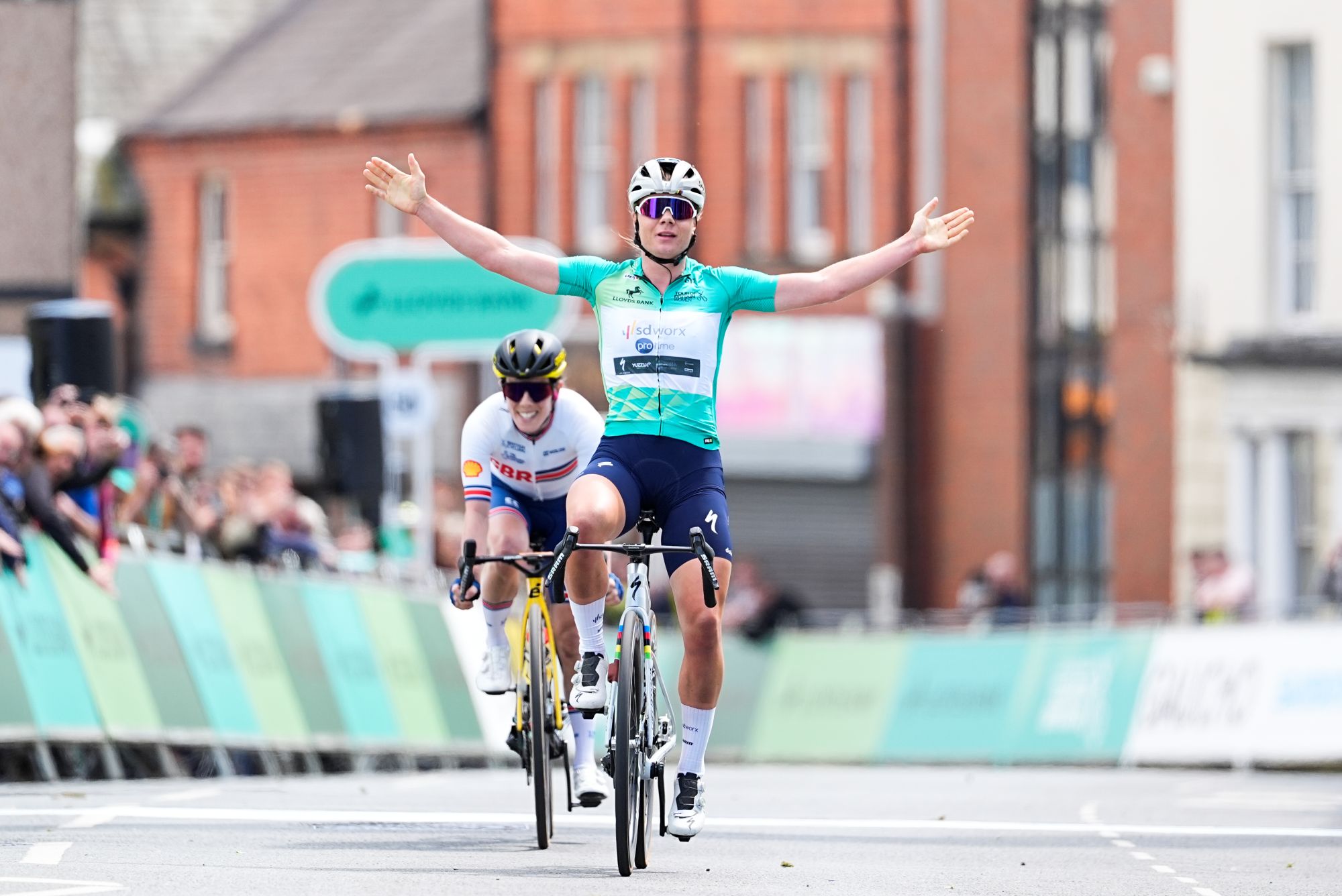 Full Tour of Britain Women route announced, taking place from North Yorkshire to Glasgow
Full Tour of Britain Women route announced, taking place from North Yorkshire to GlasgowBritish Cycling's Women's WorldTour four-stage race will take place in northern England and Scotland
By Tom Thewlis
-
 Positive signs for UK bike industry as Halfords cycling sales grow
Positive signs for UK bike industry as Halfords cycling sales growRetailer admits that the impact of Donald Trump's tariffs remains to be seen
By Tom Thewlis